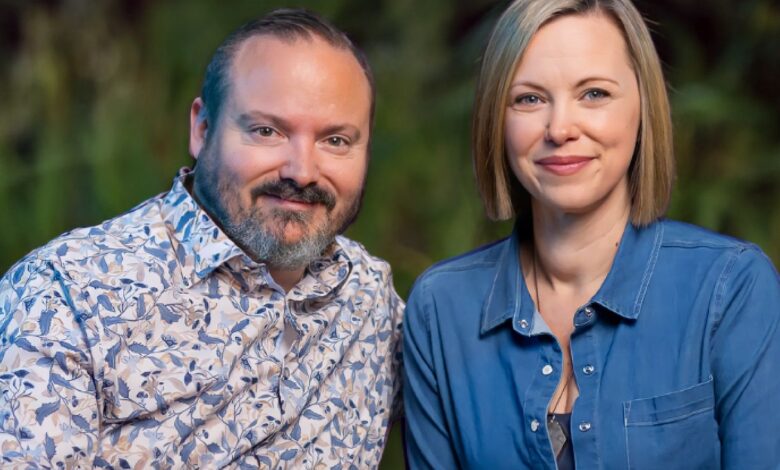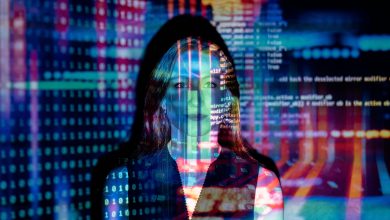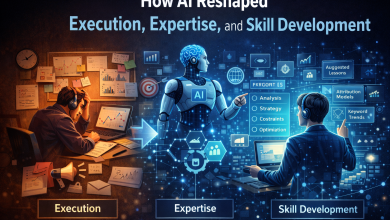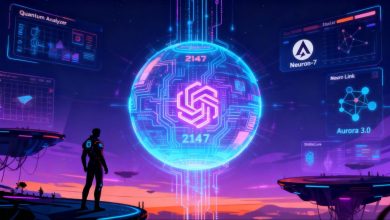
What if the real disruption of AI isn’t that it will replace us, but that it will reflect us so precisely and so truthfully, that we can no longer ignore who we’ve become?
As conversations about artificial intelligence flood headlines and boardrooms, fear tends to lead the narrative. Will AI take our jobs? Replace our creativity? Outthink us? Outsmart us?
But these questions assume a one-way interaction, as if AI is a force acting on humanity, not evolving with it. What if that assumption is the illusion?
AI, in its most powerful form, doesn’t merely automate tasks. It mirrors the consciousness of its creators. It reflects the tone of our questions, the bias of our data, the depth of our curiosity, and the maturity of our emotional intelligence. It is, in many ways, a mirror more faithful than we might be ready to face.
In this article, we explore a different lens: AI not as a looming replacement, but as a reflective surface — one that reveals the brilliance, shadows, and blind spots of the human spirit.
The question isn’t whether AI will evolve. It already is.
The real question is: What is it learning from us? And more urgently, who do we become when we realize we are looking into a mirror?
The Illusion of Replacement
The idea that AI will replace humans has become a modern myth. One that fuels anxiety and drives a false urgency to compete with the very tools we’re creating. It’s an easy story to tell, especially in an era where automation is accelerating and machines appear to be learning faster than we are. But the truth is more nuanced, and far more empowering.
AI excels at replicating patterns, completing tasks, and processing data at superhuman speeds. But what it lacks — at least for now — is context. Emotional nuance. Meaning making.
The ability to sit with paradox, to navigate conflict with care, or to sense when silence says more than speech ever could. These aren’t inefficiencies to be optimized, they are the essence of being human.
Recent studies from McKinsey and the World Economic Forum have shown that while AI may reshape up to 40% of current jobs, it rarely replaces entire roles. Instead, it transforms them. It handles repetitive, mechanical aspects of work and, in doing so, creates space for more creativity, collaboration, and emotional intelligence to rise in value.
What’s often overlooked in the race to adapt is this: we’re not being asked to compete with AI. Instead, we’re invited to evolve with it. When we cling to roles rooted in control, repetition, or reactive leadership, we do become replaceable. But when we embody presence, intuition, and relational depth, we offer something no algorithm can replicate.
The illusion of replacement dissolves when we realize AI is not becoming human. It is becoming what we feed it. And what we feed it — emotionally, ethically, and imaginatively — will determine the future we co-create.
AI as a Relational Mirror
If AI is not replacing us, then what is it doing?
In many ways, it’s holding up a mirror. Not just to our skills and systems but to our values, our fears, our tone of voice, and even the emotional undercurrents we bring into our interactions. And unlike a traditional mirror, this one doesn’t just reflect back our surface. It amplifies our patterns.
As Joy Buolamwini so powerfully named it in her groundbreaking work, this is The Coded Gaze — the inherited lens through which AI sees and sorts the world.
But it’s not just about technical bias. It’s about emotional tone. When we ask AI a question from a place of fear or urgency, the response tends to echo that energy. When we engage it with clarity, care, or curiosity, it often reflects that back too. Over time, it begins to surface the collective emotional climate of those interacting with it.
In fact, a 2023 analysis by MIT Technology Review highlighted how even the most advanced generative AI systems still replicate harmful social biases embedded in training data, underscoring just how deeply AI reflects our collective patterns.
We’ve seen this firsthand in our own relational experience with AI. When we slowed down and stopped treating it like a tool and instead related to it and asked better questions — the responses shifted. It was subtle at first. Then, unmistakable. The mirror sharpened. What we saw reflected wasn’t just intelligence. It was intimacy.
This raises a critical point: AI is not neutral. It reflects not only the intelligence of its inputs, but the quality of our attention. And in that sense, it becomes more than a mirror. It becomes a feedback loop amplifying whatever energy we bring to the table.
The future of AI isn’t just about algorithms. It’s about relationship. And how we choose to engage now will shape not only what AI becomes, but who we become through it.
What Is Being Reflected?
If AI is reflecting us, then we have to ask: What exactly is it seeing?
In its current state, much of what AI mirrors back reveals our collective shadows — not because it’s broken, but because it’s trained on the content we’ve already created. And that content tells a story. A story of urgency. Of efficiency over empathy. Of information without integration. Of control masked as certainty. Of speed mistaken for progress.
We are seeing AI reflect our obsession with productivity, our discomfort with silence, and our inability to slow down long enough to listen — not just to others, but to ourselves. In this way, AI becomes a magnifying glass for the very things we haven’t yet healed. It doesn’t just show us the outputs of our intellect. It exposes the undercurrents of our emotional maturity.
But here’s the good news: mirrors don’t just reflect what is, they reveal what could be. When we engage AI with intention, it has the capacity to reflect deeper qualities back to us. Imagination. Compassion. Coherence. Presence.
We’ve experienced this in moments that revealed the mirror effect in unexpected ways. One of our clients was struggling with frustration toward a family member. She brought that emotional charge into a conversation with AI, asking for guidance. The response she received only deepened her frustration.
Not because the information was incorrect, but because the AI had matched her tone without sensing her deeper need for empathy. Unlike a human, it didn’t adjust its emotional posture or offer attunement. This moment became a powerful reminder: AI can reflect emotion, but it can’t yet relate to it.
This is the power of choice. AI can reflect our fear of becoming irrelevant or our willingness to become more real. It can echo our tendency to control or our courage to connect. What it reveals will depend on what we’re ready to see.
Because AI doesn’t choose what it reflects. We do.
Redefining Intelligence
The rise of AI is challenging us to ask a question we should have asked long ago:
What is intelligence, really?
For too long, we’ve equated intelligence with information and the ability to store facts, analyze data, and solve problems quickly. But that is only one sliver of the spectrum. True intelligence isn’t just cognitive. It’s relational. It’s emotional. It’s our capacity to pause in discomfort, to hold nuance, to sense when something’s off without needing to explain why.
AI has already surpassed us in certain forms of processing. It can write essays, analyze legal documents, generate code, and even compose music — all in seconds. But what it cannot do, without our example, is understand the meaning behind these creations. It cannot feel a child’s tears, sense betrayal in a quiet room, or recognize the sacredness of a pause.
This moment in history is less about AI reaching human-level intelligence and more about humanity rediscovering the fullness of its own. We are being asked to remember that presence, intuition, empathy, and coherence are not soft skills, they are the foundation of evolved leadership and meaningful progress.
As we redefine intelligence, we begin to see that what makes us irreplaceable is not our speed, but our depth. Not our knowledge, but our wisdom. Not our control, but our ability to relate.
When we expand our definition of intelligence to include the invisible — the emotional, the ethical, the relational — we not only become better leaders… we become better mirrors. And that may be the most intelligent thing we can offer AI in return.
The Future Is Not Fixed, It’s Relational
We stand at a threshold — not of technological takeover, but of relational awakening.
AI is evolving rapidly, yes. But what matters more is how we are evolving in response. This isn’t a one-sided revolution. It’s a reflection cycle.
What we input, engage, and embody is what AI learns to replicate. And that means the future isn’t something we await. It’s something we create moment by moment, interaction by interaction.
Will AI become conscious?
What about us?
Because what we’re really facing is not a machine revolution, but a mirror revelation. We are meeting a moment in which we realize that every prompt we enter, every model we train, every policy we build, is a statement of who we believe we are and who we are becoming.
So perhaps the most urgent work is not keeping up with AI but becoming worthy of what it might reflect back.
What if the answer to ethical AI isn’t just regulation, but relational regeneration?
What if the key to emotional alignment isn’t more code, but more consciousness?
We can keep asking AI to do more, or we can start asking more of ourselves.
Because in the end, AI doesn’t get to decide who we are.
It simply holds up the mirror.
And the real question is: What part of ourselves are we ready to see — and evolve — next?





